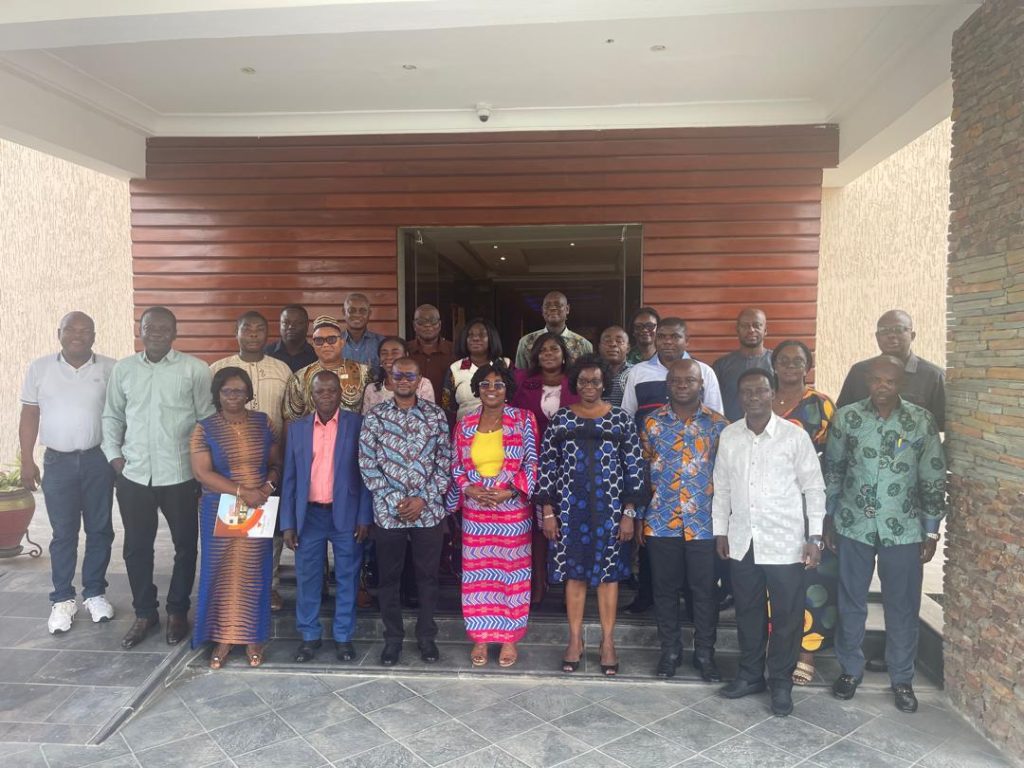|
Getting your Trinity Audio player ready...
|
The Greater Accra Regional Coordinating Council (GARCC), in collaboration with the Association of Coordinating Directors, has organised a two-day management retreat for coordinating directors in the region to deliberate on key administrative issues.
The workshop held in Ada was aimed at tackling some leadership issues affecting the effective administration of the metropolitan, municipal, and district assemblies in the region and designing appropriate strategies to address them.
This is to equip the coordinating directors to discharge their duties as stated in section 188(1) of the Local Governance Act (Act 936), 2016, which states that “Regional Coordinating Councils (RCC) were mandated to regularly monitor, coordinate, and evaluate the performance of Metropolitan, Municipal, and District Assemblies (MMDAs) in their jurisdiction and also provide technical support to MMDAs in the design, management, and implementation of projects and programmes”.
Mrs Lilian Baeka, the Chief Director, GARCC, disclosed in an interview with the Ghana News Agency (GNA) that the GARCC organises annual conferences to share experiences with each other and discuss challenges that coordinating directors were facing, to help them improve upon their performances in the various assemblies.
This, she said, was done with specially designed performance indicators covering the areas of planning, procurement, administration, finance, human resources management, auditing, and sanitation and waste management.
She added that reports from the MMDAs would also be collated and analysed for harmonisation, explaining that even though there has been an improvement in service delivery by the assemblies, the analysis of MMDAs reports has over the years revealed gnawing gaps and weaknesses.
“These include poor management of urban spaces in Accra, weak management systems, city centres turning into slums and open markets, ineffective administrative leadership styles, low productivity at the workplace, low institutional capacity to mobilise local resources, poor financial management, and inefficiency.”
She said these had undermined the institutional capacity of the assemblies to deliver effective services and leverage on the necessary local resources to promote local-level development and governance to improve the lives of the citizens in the Greater Accra Metropolitan Area.
Mrs Baeka said the workshop aimed to introduce and expose the coordinating directors to emerging issues in the local government service delivery, especially sanitation, waste management, development control and permits, revenue mobilisation, financial management, beautification, and greening.
Other issues were human resource management including managerial competencies and skills; and the sharing of best practices, as well as case studies from MMDAs, to influence peer learning by adopting participatory adult learning techniques for facilitation.
She also disclosed that the workshop was used to encourage the coordinating directors to prepare their budgets as the year was almost getting to an end, adding that the performance contract was always done based on timelines, hence the need for the MMDAs to submit their budgets on time.
“The common challenges so far have been the lateness of staff to work; some come late and close early; the other one is about revenue mobilisation, and some of them are using innovative ways to address those challenges that others have shared for others to learn,” she said.
She disclosed that the regional minister had given a directive for every district to install clock-in machines, noting that most of them had done that and the coordinating directors must also monitor the activities of their heads of departments.
She charged the coordinating directors to continue to support their chief executives to achieve their targets and monitor their staff to give their best.
The Chief Director also urged the public to pay their rates and fees if they want the assemblies to perform to their expectations developmental-wise.
Source: GNA


